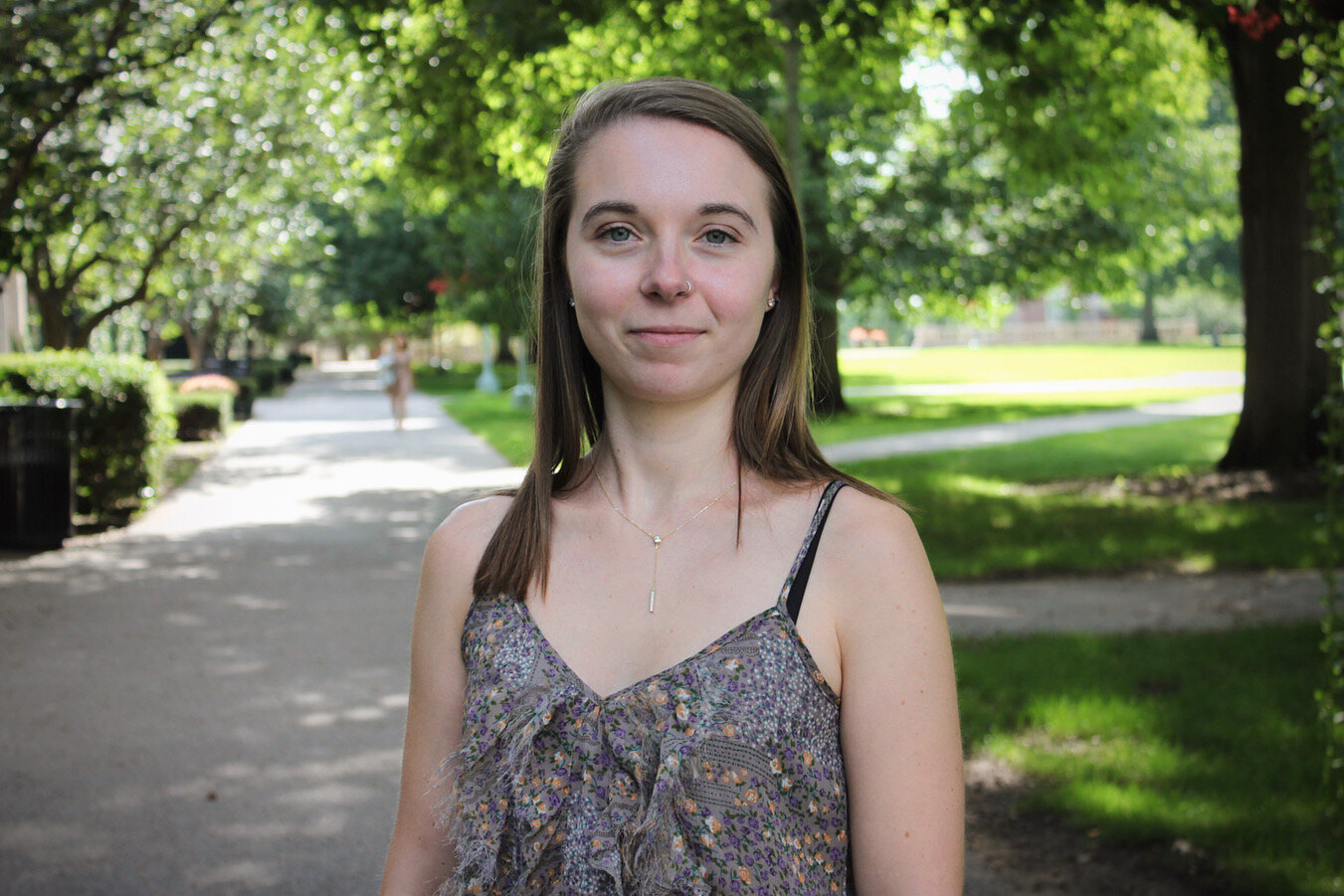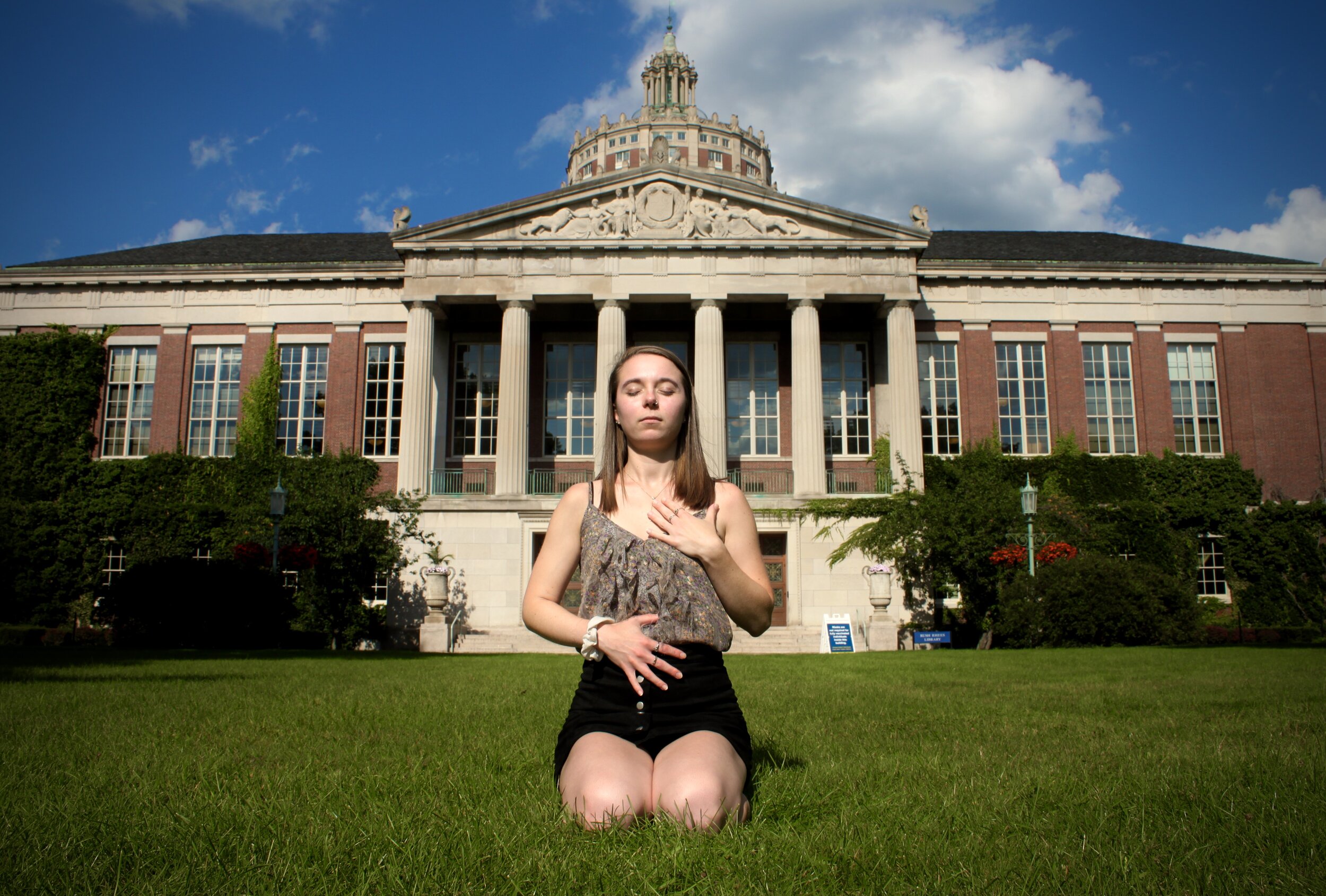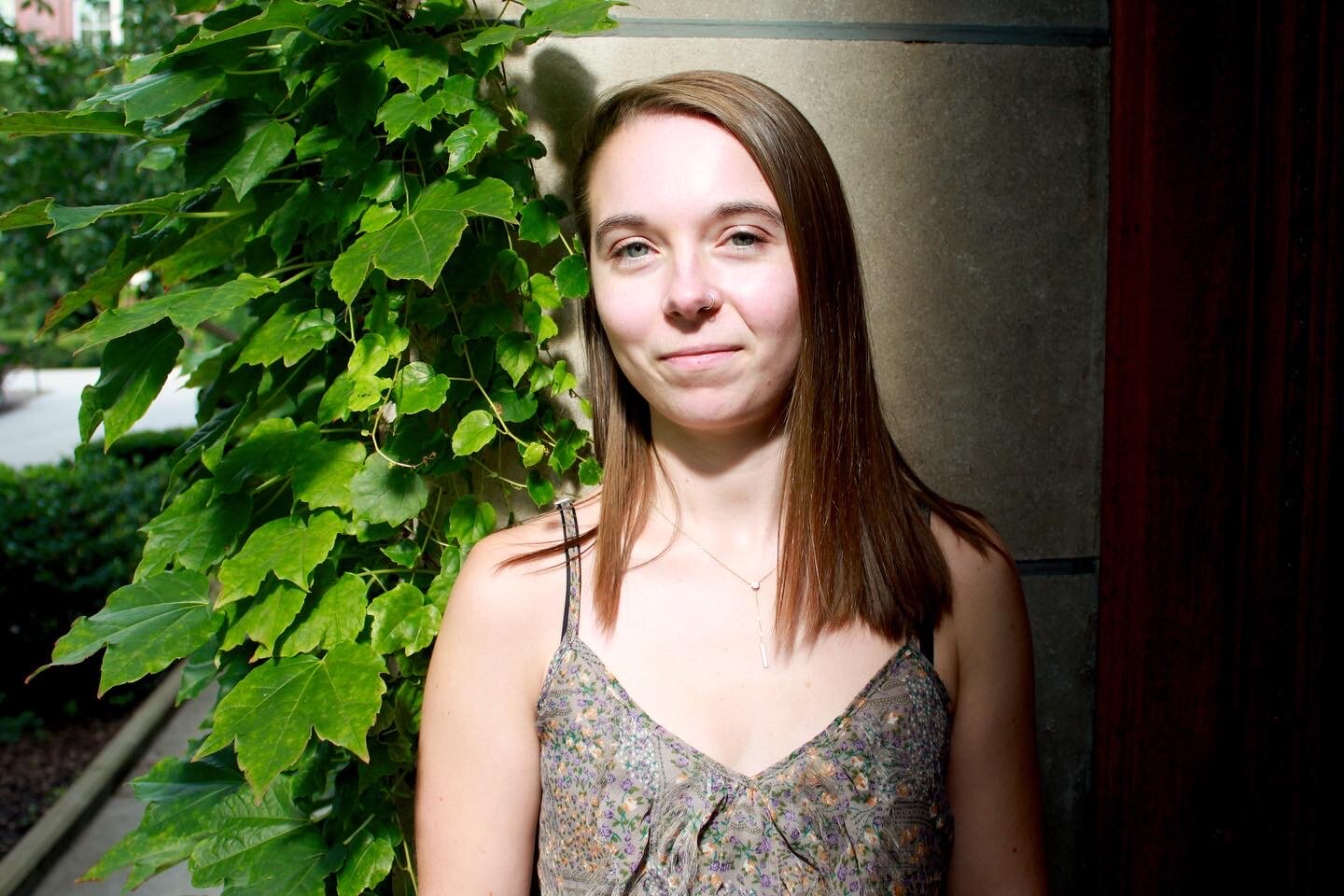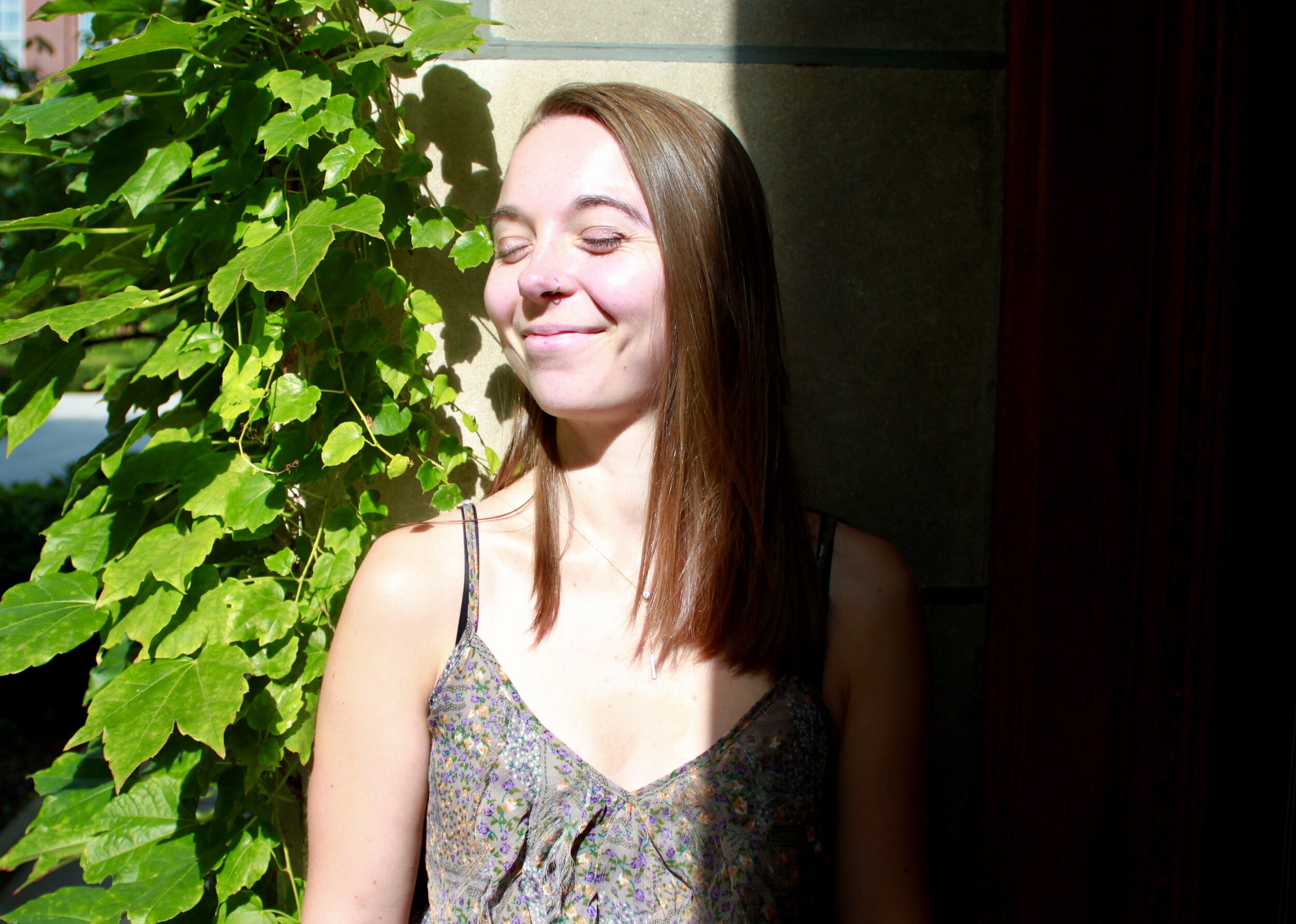Rebecca Block
“Recovery to me is a never-ending journey. It is a constant practice of self-compassion and self-care.”
NAMI: Have you ever had any mental health struggles?
RB: When I entered high school, I began experiencing significant mental health struggles. I was living with an eating disorder, my dad was in recovery from being hit by a car while running, and we had to put our dog down that I had all my life. I felt that I had a lack of control in my life and controlling my eating was a way that I coped. When I had lost a significant amount of weight and my mental health continued to worsen, I was formally diagnosed with depression and began seeing a therapist. After a short amount of time, I quickly regained my physical health and in turn, also my mental health. In addition to depression, I also was diagnosed with anxiety during my freshman year of college. My anxiety improved after I began seeing a therapist again, but it kept coming in waves, and hit a significant peak during the fall of my senior year with balancing two jobs, a heavy academic load, as well as a sudden family loss. With these experiences, I have learned a lot of healthy coping techniques to add to my tool box and while depression and anxiety can creep back up on me, it is much more manageable.
NAMI: How have you healed and grown from your experiences?
RB: Recovery to me is a never-ending journey. It is a constant practice of self-compassion and self-care. Yoga provided me with the ability to practice self-love and self-compassion that allowed me to heal from my eating disorder. After the onset of my anxiety my freshman year, I began seeing a therapist on a weekly basis and several months later, I also began learning a lot about mindfulness and meditation. I had a regular practice for about a year until I moved to NYC for an internship. Living in a busy city, my mind was in a constant state of doing and I didn’t prioritize my meditation practice. This led to several anxiety attacks. A good friend was concerned and was very open with me about her experience with medication. After our long conversation, I shifted my mindset about medication and decided to begin taking an anti-depressant the next month to be more supported and to this day, I feel that it has been one of the best decisions I have ever made.
NAMI: How do you protect your mental health?
RB: I practice meditation and positive self-affirmations daily, and I also take an antidepressant, which provides me with a much more tolerable amount of anxiety and helps to prevent me from experiencing a depressive episode. The two things that have been the most pivotal for me in my journey, however, have been my yoga practice and going to therapy. Yoga has been a key avenue for developing self-love and body neutrality after an eating disorder, and therapy for navigating the many difficult bumps in the road I have faced.
NAMI: What forms of mental health-related stigma have you observed or run into personally? How do you combat stigma?
RB: There’s a common belief in higher education that anxiety is a “necessary routine evil” of higher education. While there is positive stress (eustress) that motivates us and gives us energy to complete tasks and learn, overwhelming stress and anxiety (distress) can greatly impact one’s ability to be productive, creative, and to learn. Students uphold this belief that “everyone is anxious” and pride themselves in not taking breaks, overloading in courses, and doing all-nighters. This makes it difficult for students to take a break and/or seek help due to the normalization of anxiety, as it is seen as a weakness. To attenuate stigma regarding taking mental health breaks, we host pop-up mindfulness sessions at various locations on campus, such as the library. We also offer workshops with departments to teach faculty and staff on how to create a mindful classroom and to lead breathing exercises before or end of class to support students.
NAMI: Do you feel like you have enough support or is it challenging to find accessible and affordable treatment/therapy, etc.?
RB: Though I work full-time, covering the cost of therapy as well as my graduate student loans, meeting bi-monthly with my therapist is quite an expense with my family’s high deductible plan. I found out about the @mentalhealthconnectroc’s #RocTherapyFund a couple of months ago, where individuals in the community donate money to those who need support accessing mental health resources. These funds have helped me immensely with making the cost of therapy more manageable and I am very grateful for those in the community who have provided individuals like me the opportunity to seek out therapy with less of a financial burden.
NAMI: As Health Educator at the University of Rochester, what do you observe students struggling with the most? How can we, as a community, better support their mental health?
RB: The most prevalent things that students struggle with are overwhelm, anxiety, depression, and loneliness - especially the past year with the COVID-19 pandemic. In my role, I have focused my efforts heavily on what we can do systemically at the University, educating faculty and staff on how they can support student mental health and create mindful classrooms, but also what policy changes can be made as a community. As a community, I think the biggest thing we can do to help support our students is provide more wellness offerings in College Town, given students can easily walk or grab a bus there. Currently, there are many vacant storefronts there and my dream is to support local wellness professionals by opening up mental health clinics as well as yoga and meditation studio that offer sliding scale fees or are donation-based. These would help to support not only students, but faculty, staff, and local Rochester community members.
NAMI: What is the role of a Health Educator? What sort of messaging do you impart to students about mental health?
RB: Health educators teach individuals about prevention and healthy behaviors to improve one’s well-being, and are employed with skills to help elicit that behavior change. The role also includes collecting data and discussing health concerns with various populations to help inform educational and programming efforts. In the syllabus week and throughout the semester, I make it clear to students that their self-care and well-being is more important than their school work in the class. I often like to remind my students that studies have reported positive correlations between students’ focus, productivity, and academic performance, and taking care of themselves is a huge part of the equation. In addition, I often encourage students to email me if they're unable to complete an assignment or ask for an extension if necessary, and I also tell them they are always welcome to talk to me during office hours or schedule a meeting for things outside of the classwork.






